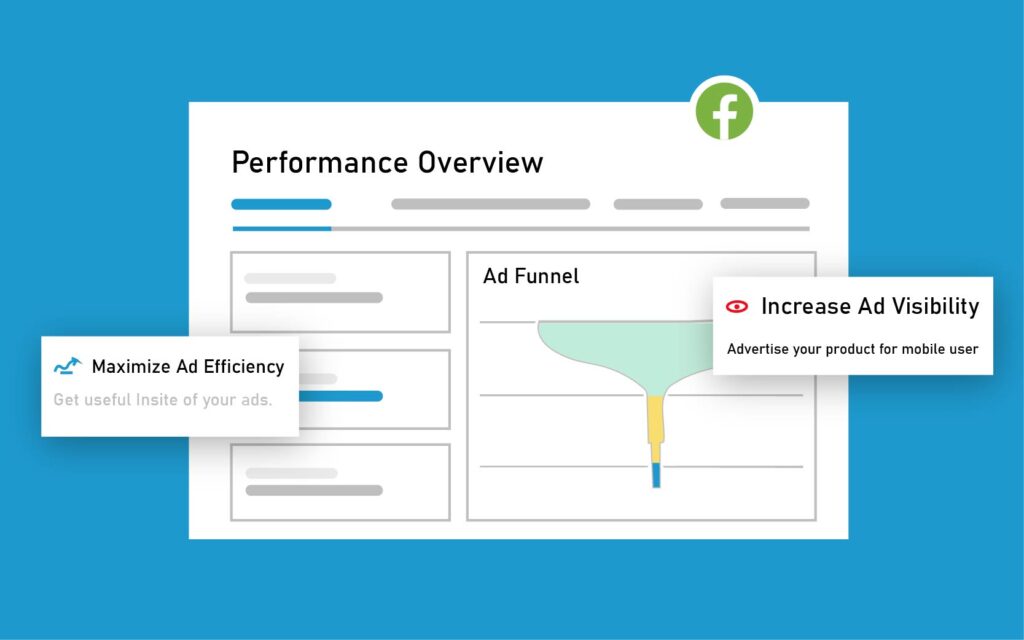
LinkedIn Client Hunting Course in Mohakhali
LinkedIn is more than just a platform for networking; it’s a powerful tool for finding

If you want my team to manage your good marketing for you, click here
Marketing on social media platforms has become an necessary skill for businesses and professionals alike. In this comprehensive guide, he or she will explore the Facebook Marketing Course in Nikunja, designed to equip participants with effective strategies and tools. They will learn how to enhance their online presence, engage with audiences, and drive sales through targeted campaigns. This course offers practical insights that empower individuals to navigate the ever-evolving landscape of Facebook marketing effectively.
To effectively harness the power of Facebook, he or she must consider various marketing strategies to achieve optimal results. Different approaches can drive engagement and generate leads. Key strategies include:
| Content Marketing | Using valuable content to attract and engage users. |
| Community Building | Cultivating a loyal audience through groups and interactions. |
| Influencer Marketing | Partnering with influencers to reach wider audiences. |
| Event Promotions | Creating and promoting engaging events. |
| Targeted Ads | Utilizing Facebook’s targeting features for precision. |
Recognizing the importance of diverse strategies can enhance Facebook marketing success.
Any successful Facebook marketing strategy includes organic marketing, which focuses on building a genuine connection with the audience without paid promotions. He or she can achieve this by posting valuable content regularly, engaging followers through comments and messages, and utilizing Facebook groups to foster community. The goal is to create a loyal following that interacts meaningfully with the brand.
Paid advertising is another vital component of Facebook marketing. He or she can utilize various ad formats to reach targeted demographics, increase visibility, and boost conversions.
Plus, investment in paid advertising allows for precise targeting options such as location, interests, and behaviors of potential customers. By using Facebook Ads Manager, he or she can create compelling ads that resonate with the audience. This approach not only accelerates reach but also provides valuable insights through analytics, which can be leveraged to refine future campaigns.
There’s a multitude of factors that contribute to successful Facebook marketing. To maximize effectiveness, marketers should consider the following:
The combination of these elements leads to impactful Facebook campaigns that resonate with users.
Successful Facebook marketing begins with a deep understanding of the target audience. Marketers should analyze demographics, interests, and online behaviors to tailor their messaging effectively.
Content plays a pivotal role in capturing the audience’s attention on Facebook. Marketers must employ a variety of formats, including images, videos, and polls, to foster user interaction and promote sharing.
A successful engagement strategy involves crafting content that not only informs but also entertains or inspires. They should prioritize storytelling techniques and authenticity, as this can help build a stronger connection with their audience. By analyzing post-performance data, marketers can refine their content approach to ensure sustained interest and engagement. Over time, this will help establish a loyal community around their brand.
It is important to follow a structured approach when launching a Facebook marketing campaign. Below is a simple table that outlines the key steps he or she should take to ensure success:
| Step | Action |
|---|---|
| 1 | Define Campaign Objectives |
| 2 | Identify Target Audience |
| 3 | Set Budget and Schedule |
| 4 | Create Compelling Ads |
| 5 | Monitor and Optimize Performance |
Facebook has become an vital platform for businesses looking to reach potential customers. To set up a business page, they should navigate to the ‘Create’ option on Facebook and select ‘Page.’ Following the prompts allows her or him to enter important information such as business name, category, and contact details, ultimately allowing them to establish a professional online presence.
Little attention is often given to the importance of crafting and running effective ads on Facebook. They need to identify the right format and creative elements that will resonate with their audience while also aligning with their campaign objectives.
A well-structured ad campaign can significantly boost engagement and conversions. He or she should consider utilizing Facebook’s targeting options to reach specific demographics, interests, or behaviors. Moreover, employing A/B testing can help determine which ad variations perform best, allowing them to refine their strategies over time. Utilizing analytics tools will enable them to assess the effectiveness of their ads, ensuring that their marketing efforts are making a measurable impact.
Now, to effectively leverage Facebook for marketing, individuals should employ key strategies. These tips can enhance engagement and visibility:
Knowing these tips can significantly elevate marketing efforts on Facebook.
Frequency plays a vital role in a successful Facebook marketing strategy. He or she should analyze their audience’s behavior to determine the optimal times for posting content. Regular engagement, without overwhelming followers, allows for consistent visibility and interaction. Testing different posting times can provide insights into when their target audience is most active and responsive.
Even advanced analytics offer significant insights into how content performs on Facebook. They should track metrics such as engagement, reach, and conversion rates to identify patterns and successes. This data aids them in refining their strategies to achieve better results over time.
Another valuable aspect of utilizing analytics is the ability to adjust campaigns in real-time. He or she can pinpoint which posts resonate most with their audience and adapt their content strategy accordingly. This ensures that marketing efforts remain effective and aligned with audience preferences, ultimately driving better performance and achieving marketing goals.

All businesses considering Facebook marketing should weigh the advantages and disadvantages. Below is a summary of key points to consider:
| Pros | Cons |
|---|---|
| Wide reach and audience targeting | Time-consuming management |
| Cost-effective advertising | Frequent algorithm changes |
| Enhanced engagement with audience | High competition in ad space |
| Detailed analytics and tracking | Potential negative feedback |
| Ability to showcase products and services | Requires consistent content creation |
Cons are often outweighed by the advantages of Facebook marketing. Businesses can tap into a massive user base, allowing them to reach diverse demographics. The platform’s targeted advertising features help them connect with specific audiences, enhancing the effectiveness of their campaigns. Furthermore, the cost-effectiveness of Facebook ads enables businesses to maximize their marketing budgets while engaging directly with their customers.
One significant challenge in Facebook marketing is the ongoing need for fresh and relevant content. As audiences become accustomed to certain types of posts, businesses must continually adapt their strategies to maintain engagement and interest. Additionally, the platform’s frequently changing algorithms can affect visibility, making it imperative for marketers to stay updated on best practices.
The challenges and limitations of Facebook marketing often require businesses to be agile and innovative. They must invest time and resources in understanding the latest trends, monitoring audience preferences, and adjusting their approaches accordingly. This dynamic environment can be daunting, but with the right strategies, businesses can navigate these obstacles and effectively leverage Facebook for growth.
Drawing together the insights gained from the Facebook Marketing Course in Nikunja, participants sharpen their skills and knowledge in leveraging this powerful platform for business growth. They learn strategies that help increase engagement and drive sales, positioning themselves ahead in the competitive digital landscape. This course provides the necessary tools and techniques that enable marketers to create effective campaigns tailored to their target audience, ensuring their efforts yield maximum impact. Ultimately, he, she, or they emerge more confident and proficient in harnessing Facebook’s vast potential for marketing success.
It is really a win-win situation 😲 for you to join the “Digital Wit Academy” Facebook group and gain the most updated information about different digital marketing strategies.

Kamrul Hassan is the founder and CEO of Digital Wit Academy. As you know, Digital Wit Academy is a fast-growing Bangla e-learning platform that provides quality knowledge and support to students. Kamrul Hassan is a government-certified Professional Digital Marketing Expert and a trainer/mentor in the Youth and sports ministry projects of the BD government. His Team Digital Wit Academy consists of well-educated and highly motivated core team members who are very friendly. They believe in quality support to make the students’ careers more successful. Support is the best part of the Digital Wit Academy courses.

Stop wasting money and unlock the hidden potential of your advertising skills with Digital Wit Academy.

LinkedIn is more than just a platform for networking; it’s a powerful tool for finding

Most professionals are aware of LinkedIn’s potential as a powerful tool for networking and client

Course participants will discover the art of leveraging LinkedIn client hunting to attract effectively. In

With the rise of digital networking, mastering LinkedIn for client acquisition has never been more

There’s an exciting opportunity for professionals seeking to enhance their networking skills through my LinkedIn
Hey, I’m Kamrul Hassan, the mastermind of Digital Wit. I’m confident to grow your brand. My only question is, will you grab the opportunity?